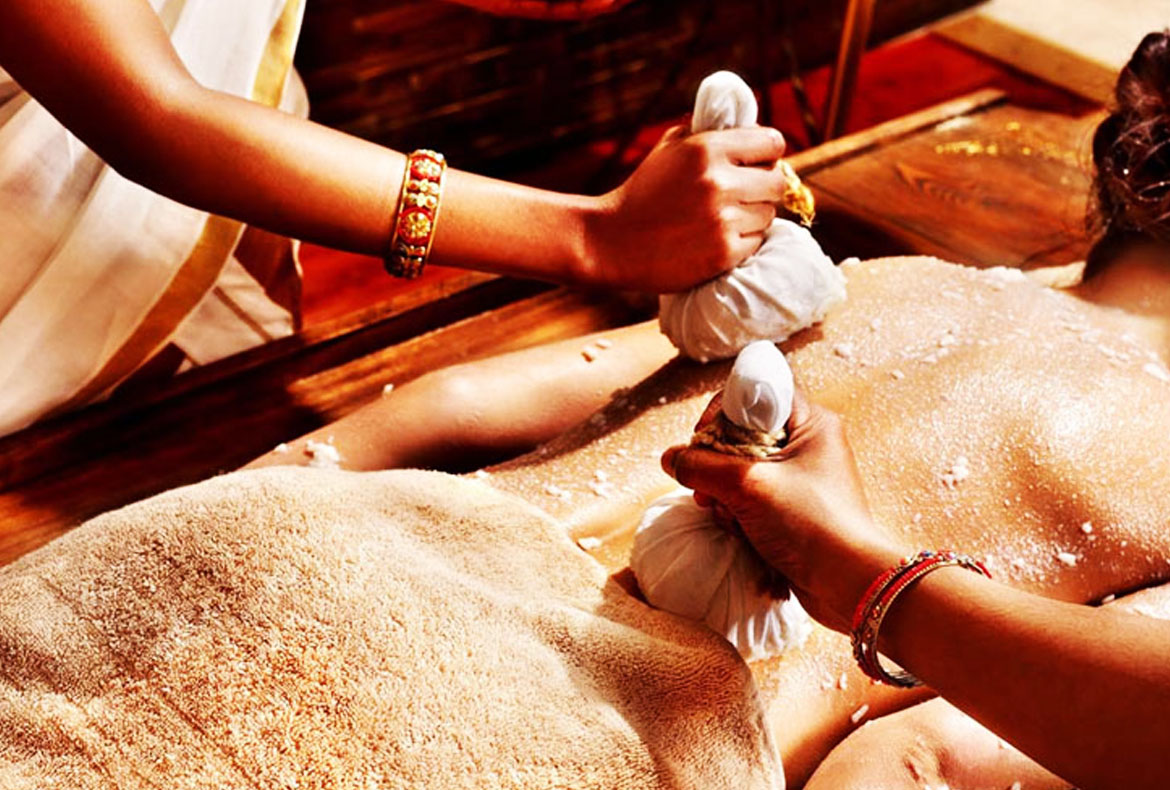
Njavara kizhi
Njavara Kizhi is a specific type of Ayurvedic massage that involves the application of warm, medicated rice poultices to the body. It is a traditional therapy that originates from Kerala, India, where Ayurveda has a deep-rooted history.
The term “Njavara” refers to a particular type of rice known for its medicinal properties. The rice used in Njavara Kizhi is specifically harvested at a certain stage of growth when it has the highest therapeutic value. The rice is then processed with various herbal decoctions and milk to enhance its healing properties.
“During the Njavara Kizhi treatment, the rice is cooked in a herbal decoction and tied into cloth bundles to form poultices. These poultices are then dipped into warm medicated milk before being applied to the body, especially focusing on specific areas or affected joints.”
The therapist gently massages the body with the warm rice poultices, allowing the therapeutic compounds from the rice and the herbal mixture to be absorbed through the skin. The warm massage helps in relaxing the muscles, improving blood circulation, and relieving joint stiffness and pain.
Njavara Kizhi is traditionally used to address various health conditions, including:
- Muscular aches and pains
- Joint stiffness and arthritis
- Neurological disorders
- Postnatal care and rejuvenation
- General weakness and fatigue
- Skin conditions
The treatment is deeply nourishing and rejuvenating, making it suitable for individuals seeking overall well-being and vitality.
Njavara Kizhi is typically performed in a series of sessions for maximum benefit. The number of sessions and the duration of treatment may vary depending on the individual’s health condition and requirements.
As with any Ayurvedic treatment, it’s essential to consult with a qualified Ayurvedic practitioner before undergoing Njavara Kizhi. The practitioner will assess your health condition, determine the appropriate herbal decoctions to be used, and tailor the treatment to suit your specific needs and Dosha (Vata, Pitta, or Kapha) constitution.



